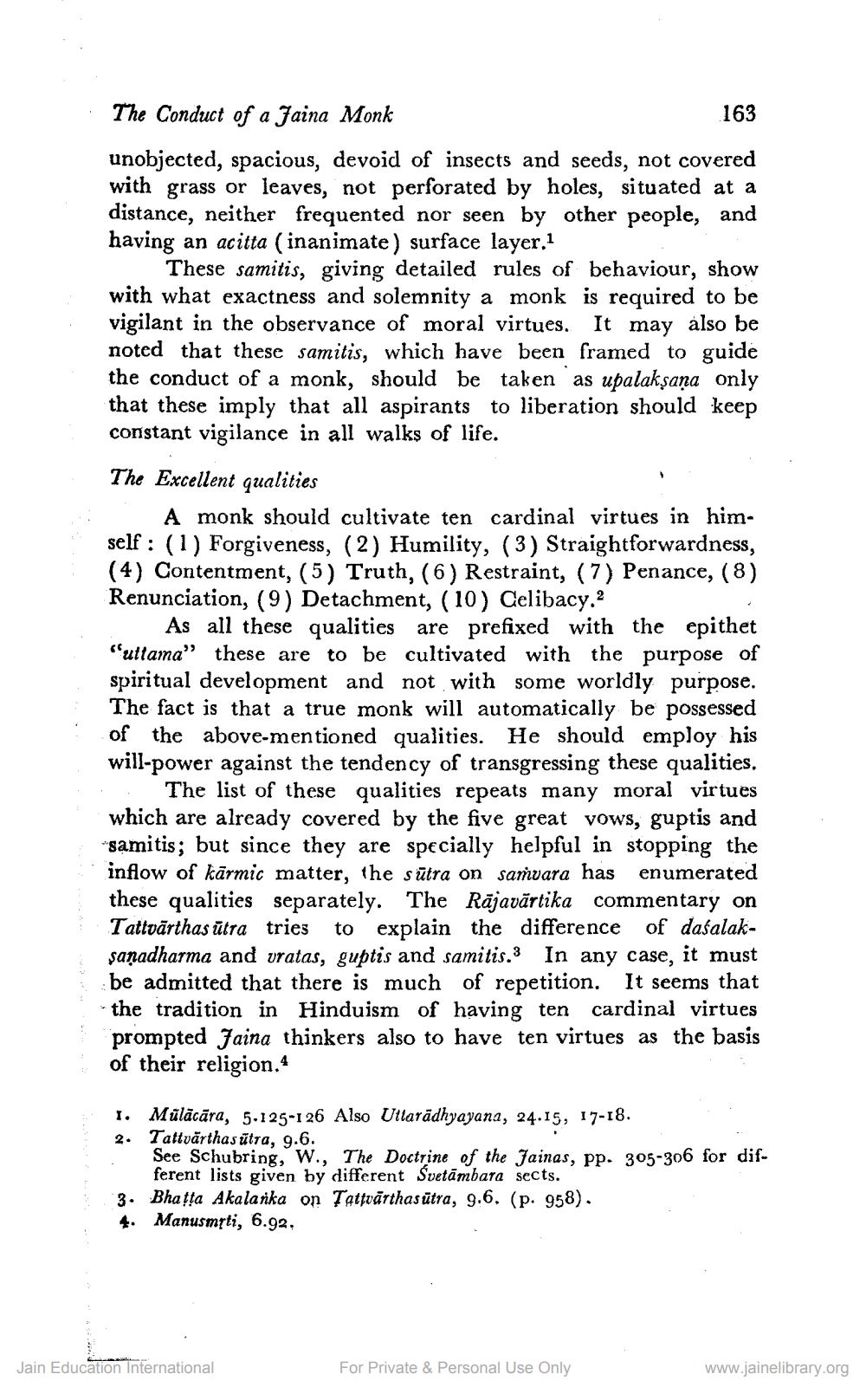________________
The Conduct of a Jaina Monk
unobjected, spacious, devoid of insects and seeds, not covered with grass or leaves, not perforated by holes, situated at a distance, neither frequented nor seen by other people, and having an acitta (inanimate) surface layer.1
These samitis, giving detailed rules of behaviour, show with what exactness and solemnity a monk is required to be vigilant in the observance of moral virtues. It may also be noted that these samitis, which have been framed to guide the conduct of a monk, should be taken as upalakṣaṇa only that these imply that all aspirants to liberation should keep constant vigilance in all walks of life.
The Excellent qualities
A monk should cultivate ten cardinal virtues in himself: (1) Forgiveness, (2) Humility, (3) Straightforwardness, (4) Contentment, (5) Truth, (6) Restraint, (7) Penance, (8) Renunciation, (9) Detachment, (10) Celibacy.2
As all these qualities are prefixed with the epithet "uttama" these are to be cultivated with the purpose of spiritual development and not with some worldly purpose. The fact is that a true monk will automatically be possessed of the above-mentioned qualities. He should employ his will-power against the tendency of transgressing these qualities. The list of these qualities repeats many moral virtues which are already covered by the five great vows, guptis and samitis; but since they are specially helpful in stopping the inflow of karmic matter, the sutra on samvara has enumerated these qualities separately. The Rajavartika commentary on Tattvärthas utra tries to explain the difference of dasalakṣaṇadharma and vratas, guptis and samitis. In any case, it must be admitted that there is much of repetition. It seems that the tradition in Hinduism of having ten cardinal virtues prompted Jaina thinkers also to have ten virtues as the basis of their religion.4
163
1. Mūlācāra, 5.125-126 Also Uttarādhyayana, 24.15, 17-18.
2.
Tattvärthas ütra, 9.6.
See Schubring, W., The Doctrine of the Jainas, pp. 305-306 for different lists given by different Svetambara sects.
3. Bhaṭṭa Akalanka on Tattvärthasutra, 9.6. (p. 958).
4. Manusmrti, 6.92.
Jain Education International
For Private & Personal Use Only
www.jainelibrary.org




